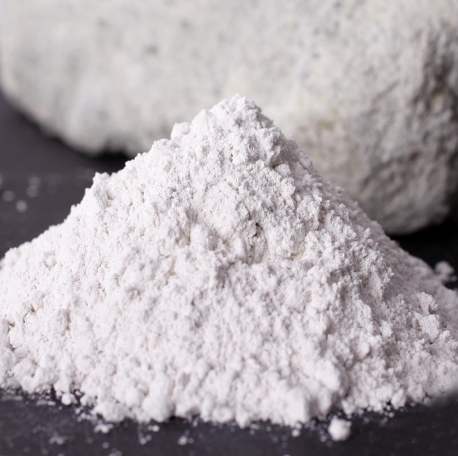Success General Trading is the major supplier of bentonite for the water drilling industry with maximum precision and economic efficiency.
Geologically, bentonite is a material composed of clay minerals, predominantly montmorillonite with minor amounts of other smectite group minerals, commonly used in drilling mud. Bentonite swells considerably when exposed to water, making it ideal for protecting formations from invasion by drilling fluids. Montmorillonite forms when basic rocks such as volcanic ash in marine basins are altered.
As a drilling fluid, it is a clay mineral that is composed principally of three-layer clays, such as montmorillonite, and widely used as a mud additive for viscosity and filtration control. Commercial bentonite ores vary widely in amount and quality of the swelling clay, sodium montmorillonite. Ores of lower quality, those with more calcium-type montmorillonite, are treated during grinding by adding one or more of the following: sodium carbonate, long-chain synthetic polymers, carboxymethylcellulose (CMC), starch, or polyphosphates. These help make the final product meet quality specifications. Unfortunately, the additives may not remain effective in "the real mud world" when in use at the rig due to hardness ions in the water, high temperature, bacterial attack, mechanical shear-degradation, and other factors that can render these additives ineffective.
Primarily its exceptional properties are noteworthy: when stirred into water, as it demonstrates a so-called thixotropic reaction. It reacts as a fluid when mechanically stressed, i.e. shaken or stirred. However, it hardens in quiescent condition because its viscosity increases.
The most common use of bentonite is in drilling fluids. The bentonite in the flush fluid lubricates and cools the cutting tools whilst protecting against corrosion. As the drilling fluid generates hydrostatic pressure in the borehole, it hinders fluid and gas penetration.
Although these drilling fluids are also used for simple drilling such as wells, their true potential is only demonstrated for demanding tasks such as drilling for oil and natural gas sources and exploration on drilling platforms.
The drilling liquid conveys the drill cuttings to the surface. When the purge pumps have idle periods, the thixotropy of the bentonite hinders the stone material from dropping back into the drilled shaft.
As a flush fluid, bentonite seals the drilled shaft from water ingress downwards and at the sides of the shaft. The mineral forms a firm sludge cake on the bore wall which provides the borehole with additional stability. The fine bentonite particles enter into the bore wall, swell and harden. Depending on the constitution of the ground structure, fine and coarse particles are needed. The requirements of the bentonite particles are not unusual, but nonetheless critical. API 13A “Specification for Drilling Materials” precisely regulates the technical data for the bentonite in the drilling fluid.
Since 2009, Success General Trading PLC has emerged as one of the largest suppliers of DRILLING GRADE SODIUM BENTONITE POWDER in Ethiopia for borehole drilling fluid chemicals. This high-quality sodium bentonite powder is crucial in drilling operations as it provides viscosity, lubrication, and stabilization, ensuring the efficient and sustainable extraction of water resources easing the combat against borehole drilling.

